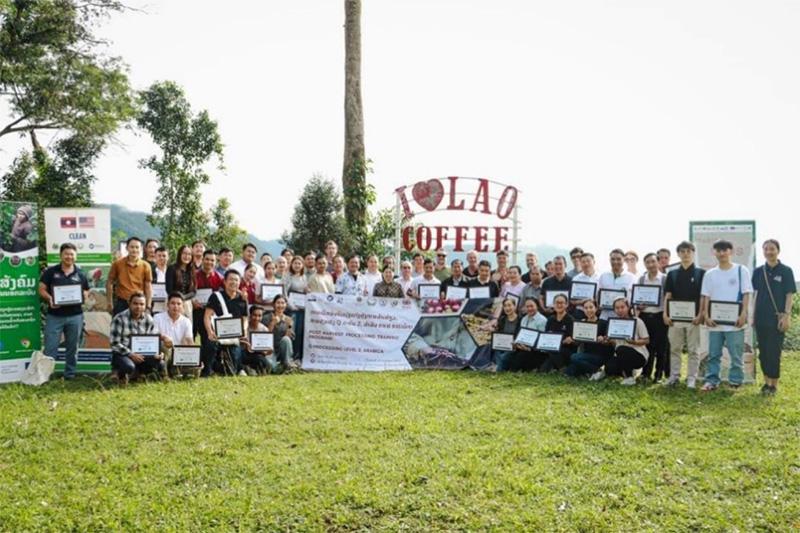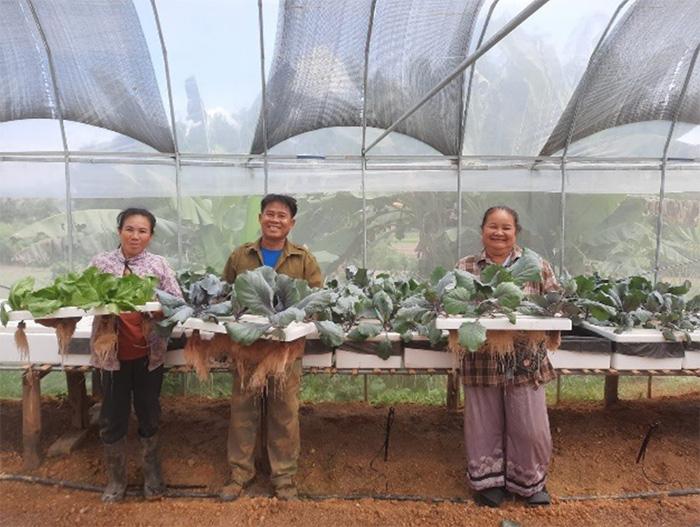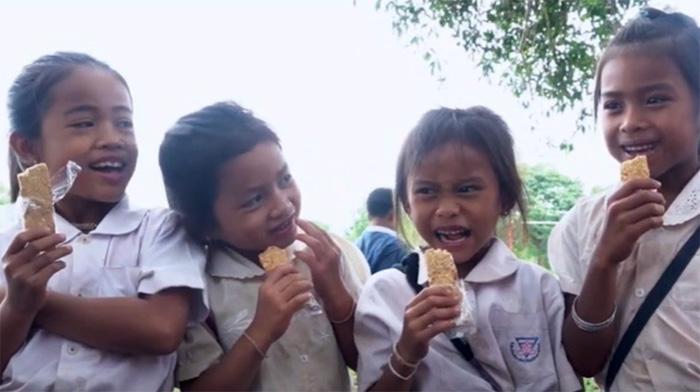
Food for Progress Success Story: Laos
The FY 2017 $20.8 million Food for Progress project in Laos named Creating Linkages for Expanded Agricultural Networks (CLEAN) is implemented by Winrock International. The project facilitates private investment in supply chain infrastructure by increasing production, reducing post-harvest losses, improving quality compliance and certification systems, and developing linkages to increase demand for clean and safe horticulture in domestic, sub-regional and global markets. The project works to support market-ready farmers, agro-enterprises, entrepreneurs, and traders in the value chains of cabbage, cassava, coffee and sacha inchi in two regions: the Bolaven Plateau and the Vientiane Plain. Additionally, CLEAN supports innovations and innovative setup to smallholder farmers and farmer groups to help the farmers unlock missing inputs, finance, and technology to enhance their climate resilience, and reduce CO2 emissions and biodiversity loss.
Between 2018 to 2023, the Food for Progress project trained and coached 13,200 producers (of which 49 percent were women) and producer groups to increase yield and income. The project provided technical support to 9,530 producers and their organizations. It established relationships with buyers in local, regional, and international markets resulting in total cumulative sales throughout the length of the project of over $270 million, representing over 1.5 million MT of commodity produced in the four value chains.
In FY 2023, the project achieved $109.8 million value (a volume of 695,057 MT) of sales by project beneficiaries (farmers and firms). The number of individuals who have applied new techniques or technologies as a result of USDA assistance reached 9,530 individuals. The number of hectares under improved techniques or technologies as a result of USDA assistance reached 19,535 hectares.

Photo credit: CLEAN project staff.
CLEAN’s interventions reflect the unique requirements of each value chain. The project partnered with organizations across the targeted value chains to achieve its mission. CLEAN partnered with the Coffee Quality Institute — an international specialty coffee authority that implements key project activities to support the development of the coffee sector in Laos — and other implementing partners to provide technical training to support high-quality coffee production and processing. CLEAN has also worked with the Lao Cassava Association and private agribusinesses to establish cassava multiplication tunnels to produce new cassava stems that are free from pests and disease that threatens production.

Photo credit: CLEAN project staff.
Historically, the production of cabbage during the Monsoon season was not possible. To overcome this issue, in July 2023, CLEAN provided greenhouses to three lead Good Agricultural Practices (GAP)-certified farmer groups to experiment with off-season cabbage production. GAP is a set of standards for the safe and sustainable production of crops and livestock. GAP aims to help farm owners maximize yields and optimize business operations while also minimizing production costs and environmental impact. Combined with the use of GAP production techniques, greenhouses can both increase yield and reduce growing time by up to half.

Photo credit: CLEAN project staff.
As a result of CLEAN’s processing equipment support to project subrecipients and production of the healthy seeds sacha inchi that are high in OMEGA-3 and protein, sacha inchi is now processed into protein powder and exported. Sacha Inchi powder and protein bars are further used now in Laos to supplement over 350 school meals through the McGovern-Dole projects in Laos.
